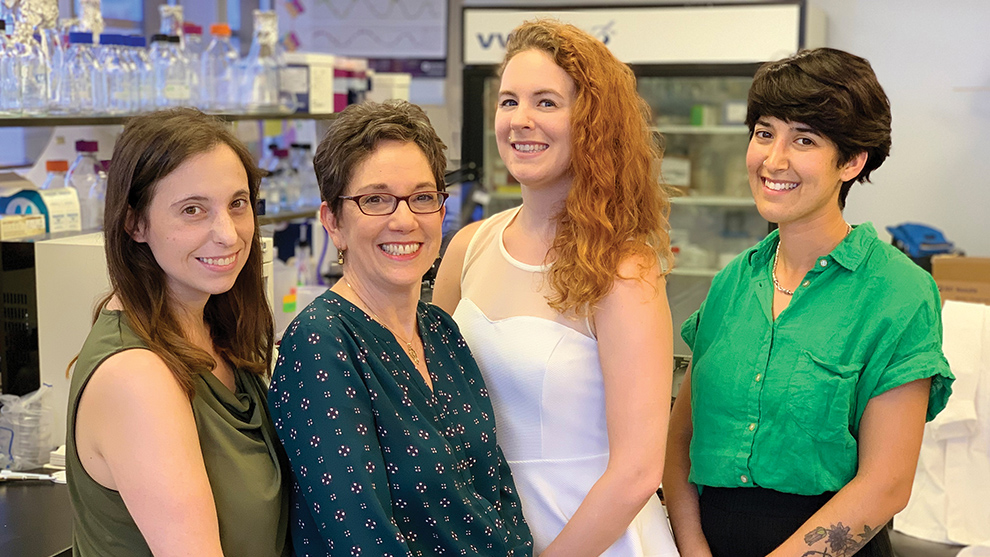The Burnstein lab at Sylvester Comprehensive Cancer Center, along with collaborators at Moffitt Cancer Center and the University of Florida Cancer Center, recently discovered that arginine vasopressin receptor type 1a (AVPR1a) can promote aggressive prostate cancer growth. While arginine vasopressin receptors are normally associated with the regulation of blood pressure and body fluids, the Burnstein lab found that androgen receptor variants, which are one of the mechanisms proposed to underlie prostate cancer relapse, increase levels of AVPR1a in prostate cancer cells.
Their research article, “Arginine vasopressin receptor 1a is a therapeutic target for castration-resistant prostate cancer,” was published June 26, 2019 in Science Translational Medicine.
Androgen deprivation therapy is the standard of care for advanced prostate cancer. When tumors recur despite androgen deprivation therapy, this incurable stage is termed castration-resistant prostate cancer (CRPC). An important goal in prostate cancer research is to identify new therapies to combat CRPC.
Kerry L. Burnstein, Ph.D., and the team of researchers demonstrated that blocking AVPR1a signaling pathways with relcovaptan, a selective antagonist of this receptor, which has been shown to be safe in humans, decreased growth of castration-resistant tumors in mouse prostates and in bone.

“While bone is the most common site of CRPC metastasis in men, growth in visceral tissues and other locations is also observed in patients. We plan to evaluate the effectiveness of AVPR1a antagonists in inhibiting metastatic prostate cancer growth at additional distal sites,” said Dr. Burnstein, Sylvester’s associate director for education and training and professor and chair of Molecular and Cellular Pharmacology at the Miller School of Medicine.
These impressive results support the potential of AVPR1a antagonists to be repurposed for treatment of castration-resistant prostate cancer.